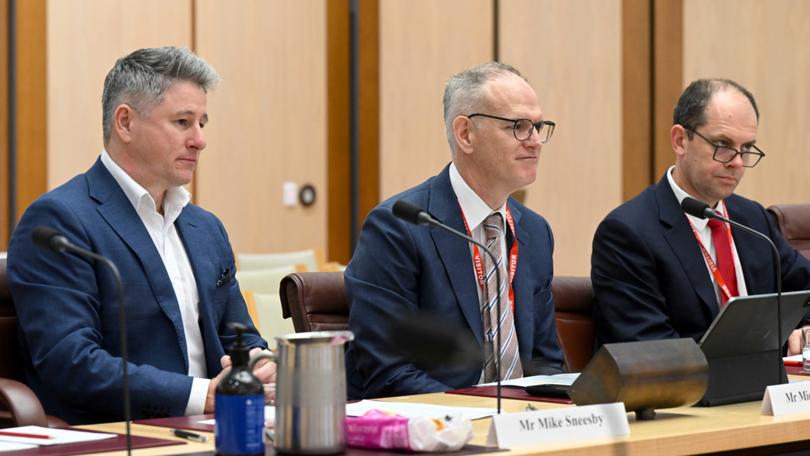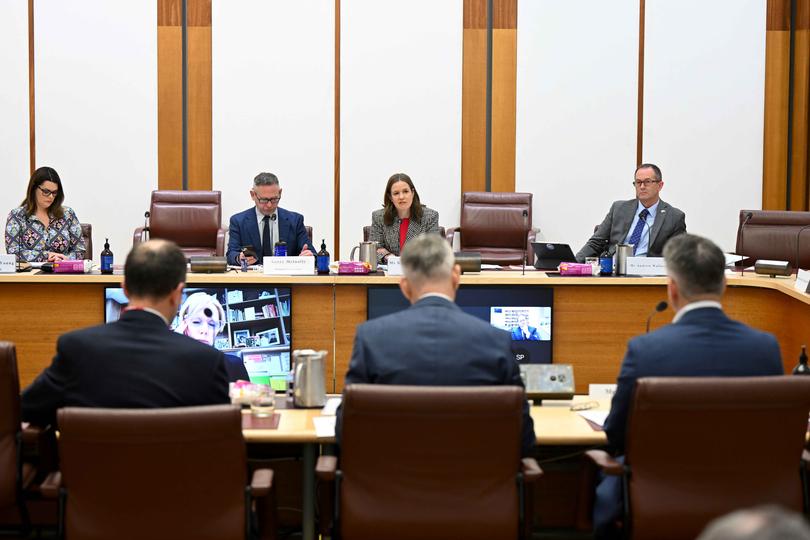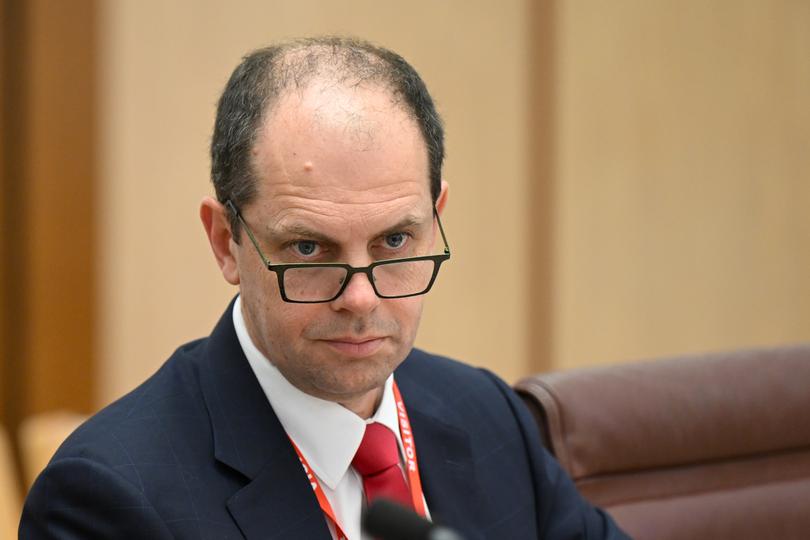Inquiry into social media: Aussie media bosses put ‘toxic’ Meta in the firing line over ‘blackmail threat’
The heads of Australia’s three biggest media companies have taken aim at Meta for ‘threatening to blackmail’ the country and putting journalism jobs on the chopping block.

The heads of Australia’s three biggest media companies have taken aim at Meta for “threatening to blackmail” the country, warning journalism jobs will be on the chopping block if the social media behemoth doesn’t renew its commercial deals.
Appearing before a parliamentary committee placing tech giants under the microscope, the trio lashed social media more broadly for becoming a “toxic force” in society and called on the Government to do more to keep the largely unregulated industry in check.
Seven West Media managing director and CEO Jeff Howard, sitting united alongside News Corp Australia’s executive chairman Michael Miller and Nine chief Mike Sneesby, took particular issue with Meta’s threat to pull news from its Australian platform.
Sign up to The Nightly's newsletters.
Get the first look at the digital newspaper, curated daily stories and breaking headlines delivered to your inbox.
By continuing you agree to our Terms and Privacy Policy.Meta has refused to renew its commercial deals — estimated to be worth about $66m a year — based on a disputed argument that users are not interested in news.
The news chiefs on Friday stood united in calling on the Government to force the tech company’s hand, or risk the country becoming prey to increasing misinformation and disinformation — pointing to statistics that show 48 per cent of Australians get their news from a Meta platform.
Under the News Media Bargaining Code, devised by the former Coalition government in 2021, the Government can force tech companies to negotiate with news organisations and pay for the journalism they are using.
It has never been activated because both Meta and Google have previously entered into voluntary agreements.

Mr Miller said Meta was “preparing to blackmail” not only the news industry, but also the government by refusing to renew its agreement to pay for news content.
“Meta is daring Australia to apply the laws this Parliament was united in passing three years ago,” he said.
“Meta is getting ready to say: ‘if you did designate us under the media bargaining code, we will punish you by blocking Australian access to local news’.
“They don’t negotiate, they dictate.”
Mr Howard said given news media companies were regulated and operated within codes of compliance, it was only fair the Government expected the same of the social media platforms.
He warned that if the Government did not designate Meta to comply with the code, Australia would suffer.
“In our view, it is now time to act. Designating Meta or compelling them to engage through arbitration... to ensure that platforms take responsibilty for the content they distribute, particularly when it comes to protecting consumers, and especially kids,” he said.

Mr Sneesby warned Meta’s abandonment of the code “will have an immediate and detrimental impact”.
“The Government should be prepared to designate digital platforms who do not voluntarily maintain commercial agreements with Australian media companies in accordance with the news media bargaining code,” he said.
They also warned that if Meta did pull news from its content, it would strip millions of dollars out of newsrooms, costing jobs.
Mr Howard said Seven West Media, the owner of The Nightly, would be forced to look at cutting jobs “across the board”.
Mr Sneesby said the funding his company would lose from the Meta deal would amount to cutting at least 50 jobs.
The threat of layoffs is just one part of the news chiefs’ concerns about Meta pulling journalism from its platforms.
The three said social media more broadly had become a “toxic force in our society”, listing scams, cyberbullying, deep fakes and political interference among their biggest concerns, and warning new harms were constantly emerging.
“The tragic toll social media is inflicting on the generation of young people must be urgently stopped,” Mr Miller said.
Mr Sneesby said greater protections were needed to keep young social media users safe, “whether it’s greater regulation and obligations nad accountability on the platforms”.
Mr Miller said his company was “very clear” on the fact social media use should be restricted to young people, and backed in the Coalition’s pledge to raise the age to 16.

